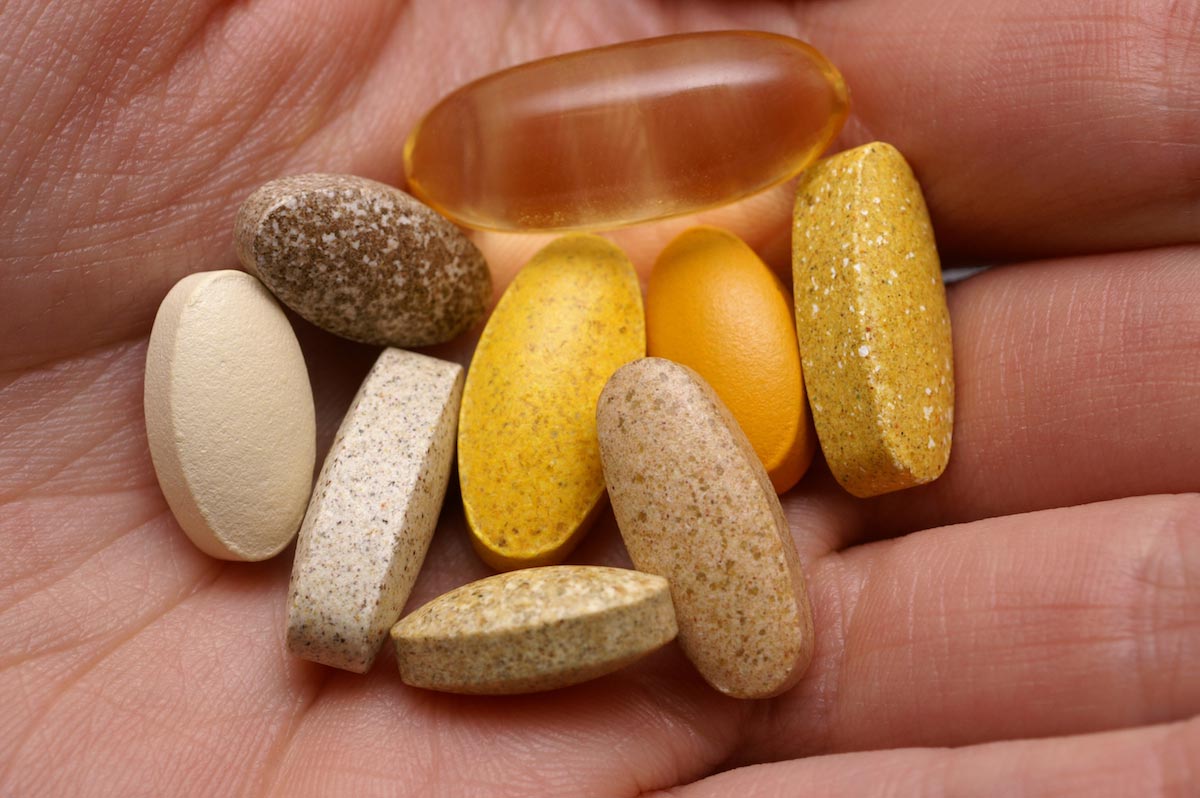What is oncometabolic syndrome and how do you control it?
09/05/2019 / By Evangelyn Rodriguez

The human body depends on good nutrition to sustain a healthy growth. Like the earth when planted with seeds, an ample supply of nutrients and other essentials ensures it produces nothing but good things. On the other hand, deficiencies and poor nutrition lead to lack of growth. In the case of the human body, it can lead to the development of serious diseases like cancer. The good news is, your body knows how to give signals when you’re at risk of cancer. And these warning signs, collectively known as oncometabolic syndrome, are mostly preventable.
What is the oncometabolic syndrome?
According to Dr. Jean Wallace, a nutritional oncologist, oncometabolic syndrome (OMS) is a “cluster of nutritional and metabolic factors that can influence the growth and progression of cancer.” It basically has the same symptoms as metabolic syndrome (MS), such as an impaired ability to regulate blood glucose and insulin, increased waist size, increased fasting glucose, increased triglycerides, low HDL cholesterol, and elevated blood pressure. These symptoms are also associated with the risk of cardiovascular diseases and diabetes.
To prevent OMS, controlling the following metabolic factors is necessary:
- Blood sugar
- Estrogen levels
- Immune function
- Nutrient intake
- Inflammation
OMS should not be taken lightly. If left unaddressed, OMS can:
- Increase the risk of recurrence
- Increase the risk of post-operative/post-treatment complications
- Increase inflammation
- Influence immune response
- Increase circulating estrogens
Chronic inflammation is linked to many diseases with high mortality rates. Over time, it can cause DNA damage that leads to cancer. Bowel diseases characterized by chronic inflammation are also known to increase the risk of colon cancer. On the other hand, circulating estrogens are associated with the risk of breast cancer in postmenopausal women.
How sugar influences the growth of cancer
Glucose is an important factor not only in diabetes, but also in cancer. The saying “sugar feeds cancer” actually holds true: Blood glucose, insulin, and insulin-like growth factors do contribute to the growth of cancer. In particular, high levels of insulin-like growth factors, such as IGF-I and IGF-II, are linked to an increased risk in prostate, breast, colorectal, and ovarian cancer. Nutrition and lifestyle — low physical activity and high dietary intake — also play roles in cancer development as they affect the metabolism of insulin and IGFs. Anabolic signals associated with circulating insulin and IGFs promote tumor development and cancer cell proliferation.
How to prevent oncometabolic syndrome
OMS may be connected to various diseases, but it is not completely unavoidable. According to Dr. T. R. Morris, a naturopathic medical doctor, there are many things that people can do to make the body less hospitable to cancer. These include:
Eating foods associated with remission. Studies involving cancer patients shed light on which foods are beneficial. For instance, avoiding canned and processed foods, commercially raised meats, sweetened foods, and alcoholic beverages leads to a higher chance of spontaneous regression. Foods that cancer survivors eat more frequently include broccoli, leeks, onions, cauliflower, Brussels sprouts, carrots, squash, legumes, apples, and pears.
Reducing inflammation. Elevated CRP or C-reactive protein (inflammation marker) levels correlate with fatigue, poor quality of life, loss of weight, and shorter survival. To prevent an increase in CRP, prioritize consumption of wild fish and grass-fed animal products. Supplementation with fish oil, which contains DHA and EPA, and boswellia, which is effective against chronic inflammation, will also help. Getting adequate sleep every night is another priority.
Increasing vitamin D3. Vitamin D is produced by the body when it is exposed to sunlight. Vitamin D helps with cell growth, bone formation and remodeling, immune function, and reducing inflammation. For people who stay indoors most of the day, there are foods that they can eat which provide vitamin D. Some examples are salmons, sardines, mushrooms, egg yolks, and fortified dairy products.
Reducing stress and estrogen levels. Stress promotes inflammation. It can be caused by life events and exacerbated by certain foods. Foods to avoid when you’re stressed are those that contain sugar, artificial sweeteners, caffeine, processed carbohydrates, and alcohol. On the other hand, foods like black pepper, cinnamon, turmeric, rosemary, mangoes, and licorice help lower stress levels.
As for estrogen, foods that reduce aromatase activity can normalize its levels. Cruciferous vegetables, grapefruit, Thai ginger, mung beans, rosemary, thyme, and basil are some of the foods that can help when you have too much estrogen.
Sources include:
Tagged Under: aging, blood sugar, cancer, cancer risk, cardiovascular disease, chronic inflammation, dairy products, diabetes, disease risk, estrogen, food cures, food is medicine, functional food, heart health, immune system, insulin, longevity, metabolic factors, metabolic syndrome, nutrient deficiency, nutrients, nutrition, oncometabolic syndrome, organics, prevention, processed meat, stress, vitamin D, vitamins, women's health
RECENT NEWS & ARTICLES
COPYRIGHT © 2017 VITAMIN D NEWS


















